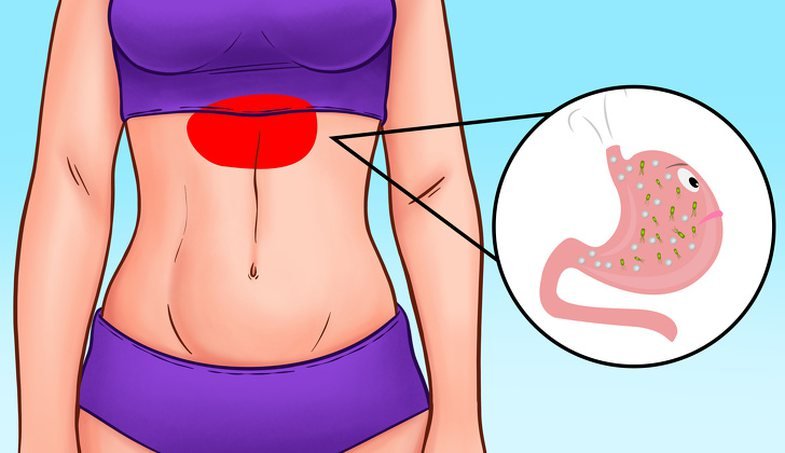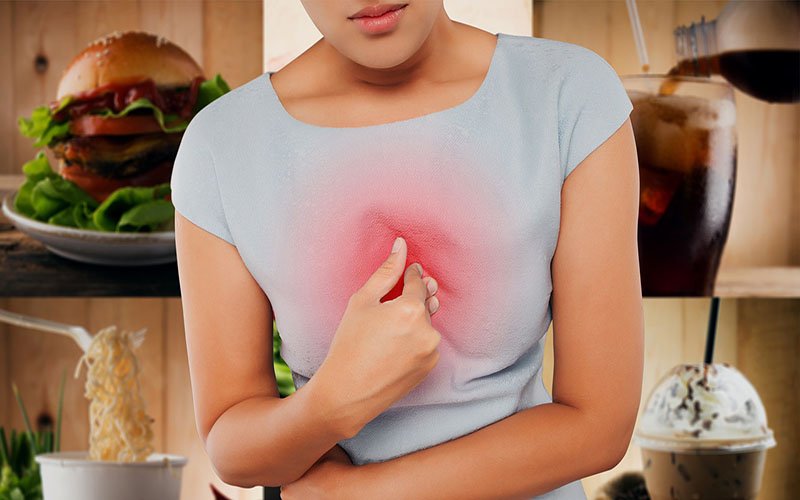7 Proven Ways To Reduce Or Eliminate Bloating and Gas Naturally | Naturactin Health and Wellness
Naturactin Health and Wellness
 Bloating is when your belly feels swollen after eating. It is usually caused by excess gas production or disturbances in the movement of the muscles of the digestive system. Bloating can often cause pain, discomfort, and a “stuffed” feeling. It can also make your stomach look bigger.
Bloating is when your belly feels swollen after eating. It is usually caused by excess gas production or disturbances in the movement of the muscles of the digestive system. Bloating can often cause pain, discomfort, and a “stuffed” feeling. It can also make your stomach look bigger.
“Bloating” is not the same as water retention, but the two terms are often used interchangeably. Put simply, bloating involves excessive amounts of solids, liquids, or gas in your digestive system. However, in some people, bloating is caused mostly by increased sensitivity. It just feels as if there is increased pressure in the abdomen, even though there isn’t. About 16–30% of people report that they regularly experience bloating, so this is very common.
Although bloating is sometimes caused by serious medical conditions, it is most often caused by the diet and some foods or ingredients you are intolerant to. Here are 7 proven ways to reduce or eliminate bloating and gas.
1- Don’t Eat Too Much at a Time
Being stuffed can feel like being bloated, but the problem is that you simply ate too much. If you’re eating big meals and tend to feel uncomfortable afterward, then try smaller portions. Add another daily meal if necessary. A subset of people who experience bloating doesn’t really have an enlarged stomach or increased pressure in the abdomen. The issue is mostly sensory.
A person with a tendency to be bloated will experience discomfort from a smaller amount of food than a person who rarely feels bloated. For this reason, simply eating smaller meals can be incredibly useful. Chewing your food better can have a two-fold effect. It reduces the amount of air you swallow with the food (a cause of bloating), and it also makes you eat slower, which is linked to reduced food intake and smaller portions.

2– Rule Out Food Allergies and Intolerances to Common Foods
Food allergies and intolerances are relatively common. When you eat foods that you are intolerant to, it can cause excess gas production, bloating, and other symptoms.
Here are some common foods and ingredients to consider:
- Lactose: Lactose intolerance is associated with many digestive symptoms, including bloating. Lactose is the main carbohydrate in milk.
- Fructose: Fructose intolerance can lead to bloating.
- Eggs: Gas and bloating are common symptoms of egg allergy.
- Wheat and gluten: Many people are intolerant to gluten, a protein in wheat, spelt, barley, and some other grains. This can lead to various adverse effects on digestion, including bloating.
Both lactose and fructose are a part of a larger group of indigestible carbs or fiber known as fermentable oligo-, di-, monosaccharides, and polyols (FODMAPs). FODMAP intolerance is one of the most common causes of bloating and abdominal pain. If you strongly suspect that you have a food allergy or intolerance, see a doctor.
3- Avoid Swallowing Air and Gases
There are two sources of gas in the digestive system. One is gas produced by the bacteria in the gut. The other is air or gas that is swallowed when you eat or drink. The biggest offender here is carbonated beverages like soda or fizzy drinks.
They contain bubbles with carbon dioxide, a gas that can be released from the liquid after it reaches your stomach. Chewing gum, drinking through a straw, and eating while talking or while in a hurry can also lead to an increased amount of swallowed air.
4- Don’t Eat Foods That Give You Gas
Some high-fiber foods can make people produce large amounts of gas. Major players include legumes like beans and lentils, as well as some whole grains. Try keeping a food diary to figure out if certain foods tend to make you gassier or bloated than others. Fatty foods can also slow down digestion and the emptying of the stomach. This can have benefits for satiety (and possibly help with weight loss) but can be a problem for people with a tendency to bloat. Try eating fewer beans and fatty foods to see if it helps.
5- Take Digestive Enzyme Supplements
Certain over-the-counter products may also help with bloating, such as supplemental enzymes that can help break down indigestible carbohydrates.
Notable ones include:
-
Lactase: An enzyme that breaks down lactose, which is useful for people with lactose intolerance.
- Beano: Contains the enzyme alpha-galactosidase, which can help break down indigestible carbohydrates from various foods.
In many cases, these types of supplements can provide almost immediate relief.
If you’re interested in trying a digestive enzyme supplement that works, click here.

6- Avoid being constipated
Constipation is a very common digestive problem and can have many different causes. Studies show that constipation can often exacerbate symptoms of bloating. Getting more soluble fiber is often recommended for constipation. However, increasing fiber needs to be done with caution for people who have gas and/or bloating, because fiber can often make things worse. You might want to try drinking more water or increasing your physical activity, both of which can be effective against constipation.
Various foods such as prunes, apples, pears, kiwi, etc can also help.
7. Take Probiotics
Gas produced by the bacteria in the intestine is a major contributor to bloating. There are many different types of bacteria that reside there, and they can vary between individuals. It seems logical that the number and type of bacteria could have something to do with gas production, and there are some studies to support this.
Several clinical studies have shown that certain probiotic supplements can help reduce gas production and bloating in people with digestive problems. However, other studies showed that probiotics can help reduce gas but have no symptoms of bloating. This may depend on the individual, as well as the type of probiotic strain used.
Probiotics supplements can have numerous other benefits, so they are worth giving them a try. They can take a while to start working because supplements don’t work as fast as conventional drugs, so it is important to be patient.
Click here to learn more about our complete solutions to beat the bloat.

Paul Ambolo
Blog Contributor
For Inquiries feel free to Contact Us
For our Free Health Quiz, visit www.naturactin.net
Visit our store – www.naturactin.shop






Leave a Reply
Want to join the discussion?Feel free to contribute!